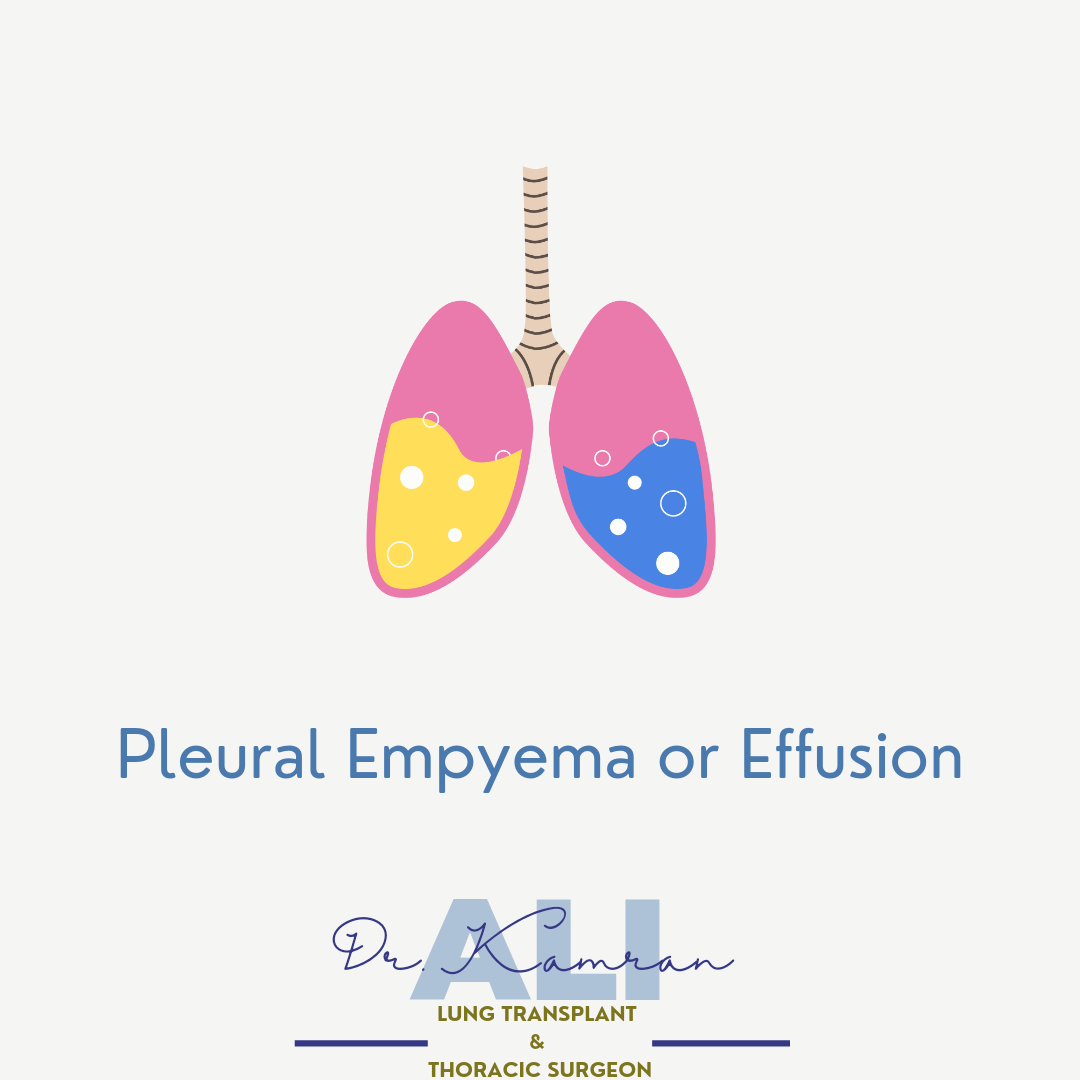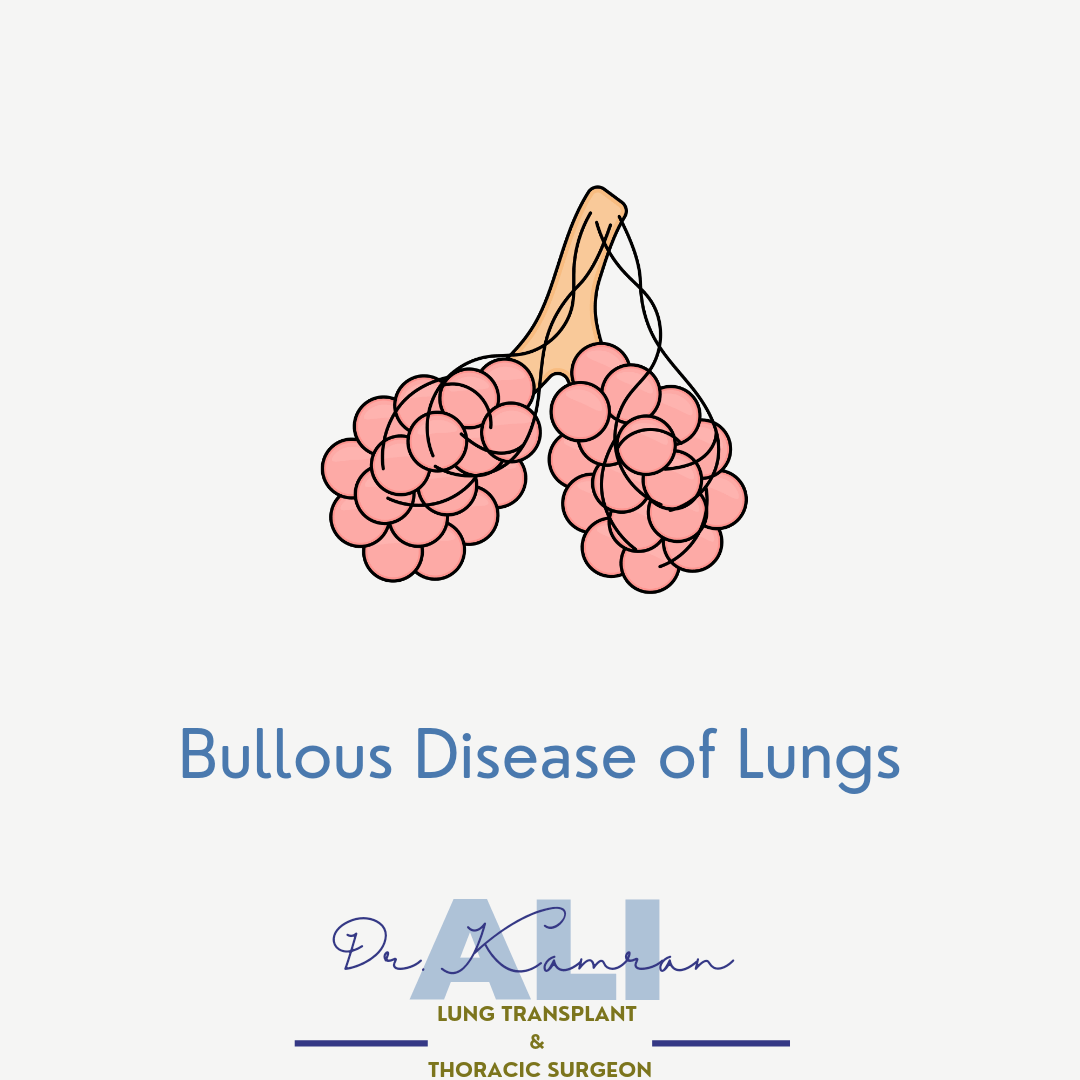Our Treatments
Treatment Options
Our team of highly qualified and dedicated professionals offer surgical treatment for the entire spectrum of chest diseases ranging from infective/inflammatory lung diseases to benign and malignant thoracic pathologies.
We provide customized surgical solutions keeping in mind that every patient is different.
11+ Years Experience
5 Star Rating
Patient Friendly
Dedicated Support

Lung Transplant
Lung Transplant is the surgical process of replacing a patient's diseased pair of lung with healthy ones. It is offered to patients suffering from End Stage Lung Diseases

Tracheal Tumor
Tracheal tumors are growths or masses in the main airway which may cause respiratory distress or choking sensation or wheezing

Lung Cancer
Lung cancer is the abnormal or unregulated growth of cells in the lung tissue. It may be incidently detected or may present with a number of clinical features

Pleural Empyema & Effusion
Empyema means collection of pus outside the lungs in the pleural cavity. Effusion is presence of fluid outside the lungs. Both effusion and empyema may cause the underlying lung to collapse

Tracheal Stenosis or Stricture
Narrowing of the windpipe usually found post prolonged mechanical ventilation and intubation or post-tracheostomy. Sometimes also seen because of accidental ingestion of corrosives

Bronchiectasis
Bronchiectasis is a condition where the airways of the lungs become widened, leading to a build-up of excess mucus that can make the lungs more vulnerable to recurrent infection

Pneumothorax
A pneumothorax occurs when air leaks into the space between lung and chest wall. This air pushes on the outside of the lung and makes it collapse. It can be a complete lung collapse or a collapse of only a portion of the lung

Rib Fractures & Chest Trauma
A rib fracture is a common injury that occurs when one or multiple of the bones in the rib cage breaks or cracks. Sometimes it is accompanied by underlying lung or other chest organ injury. The most common cause is chest trauma.

Lung Abscess
A lung abscess is a pus-filled cavity in lung surrounded by inflamed tissue. It usually results from breathing bacteria that normally live in the mouth or throat into the lungs, leading to an infection. It is often seen in alcoholics and immunocompromised hosts

Myasthenia Gravis & Thymoma
Myasthenia gravis is a chronic autoimmune, neuromuscular disease that causes weakness in the skeletal muscles. Thymoma is a disease in which cancer cells form in the thymus. Thymoma is linked with myasthenia gravis and other autoimmune paraneoplastic diseases

Diaphragm Paralysis or Hernia
Diaphragm paralysis is the loss of control of one or both sides of the diaphragm. This causes a reduction in lung capacity. A diaphragmatic hernia occurs when one or more of the abdominal organs move upward into the chest through a defect (opening) in the diaphragm

Carcinoid Tumor of Lung
A rare type of lung cancer. Only 1% to 2% of lung cancers are carcinoid tumors. They usually grow slowly. They are a type of neuroendocrine tumor, meaning that they start in special cells, called neuroendocrine cells, that are found in the lungs and throughout the body

Palmar Hyperhidrosis
Hyperhidrosis is a common condition in which a person sweats excessively. The sweating may affect the whole of your body, or it may only affect certain areas. Commonly affected areas include the: armpits, palms of your hands, soles of your feet, face and chest, groin

Hemothorax & Chylothorax
Hemothorax is a collection of blood in the space between the chest wall and the lung (the pleural cavity). Chylothorax is a rare but serious condition in which a milky white fluid called lymph formed in the digestive system (chyle) accumulates in the chest cavity due to multiple reasons

Bullous Disease of Lungs
Bullous lung disease is characterized by the development of bullae within the lung parenchyma. A bulla is a permanent, air-filled space within the lung parenchyma that is at least 1 cm in size and has a thin or poorly defined wall; it is bordered only by remnants of alveolar septae and/or pleura

Posterior Mediastinal Tumors
Posterior mediastinal tumors are a group of tumors usually neurogenic in origin arising in the posterior compartment of the mediastinum. They are more commonly seen in children and younger adults. These patients may be symptomatic or can often be incidentally diagnosed on screening for other issues

Hydatid Cyst
Echinococcosis or hydatid disease is caused by larvae of the tapeworm Echinococcus. The liver and lungs are the most frequently involved organs. Although most patients are asymptomatic, some may occasionally expectorate the contents of the cyst or develop symptoms related to compression of the surrounding structures

Lung Nodules or Metastasis
Lung nodules are small clumps of cells in the lungs. These may be limited to one side of the lung or maybe present in both lungs. Most lung nodules are scar tissue from past lung infections but can also be metastasis from other tumors. Lung nodules usually don't cause symptoms. They're often found by accident on a chest X-ray or CT scan
F.A.Q.
About Thoracic Surgery
A Thoracic Surgeon is a Physician who specializes in the surgical management of chest diseases. Broadly speaking a thoracic surgeon performs all non cardiac chest surgeries.
A Thoracic Surgeon provides management and services for several conditions, including but not limited to those listed below
- End Stage Lung Disease
- Lung Cancer
- Empyema
- Bronchiectasis
- Fungal lung diseases – Aspergilloma, Mucormycosis
- Chest wall Tumor
- Congenital lung malformation
- Diaphragmatic hernia
- Emphysema and Bullous lung disease
- Endobronchial tumor
- Esophageal Cancer
- Esophageal stricture
- Hyperhidrosis
- Lung mass or Lung nodule
- Mediastinal tumor
- Myasthenia Gravis
- Mesothelioma
- Pancoast tumor
- Pleural effusion
- Pleural mass
- Pneumothorax
- Thoracic Outlet Syndrome
- Thymic tumor
- Tracheal stenosis
- Tracheoesophageal fistula
Like all surgery, there are risks to thoracic surgery. They include infection, bleeding, abnormal heartbeats, air leakage from lungs, injury to surrounding structures, need for prolonged ventilation, formation of clots in blood vessels, pain etc
Your surgeon will review your history and radiology studies before discussing your condition with you, so please carry your complete medical records including blood tests, X rays, CT scans, PET scans etc.
We highly recommend that you bring a family member into the meeting with your surgeon.
If surgery is appropriate, the surgeon will discuss the type of surgery you will have, the risks and benefits of the surgery and the recovery process.
Your surgeon will also provide you with contact information should you have any additional questions later on.
Smoking Cessation
If you are still smoking, you must stop before your operation – at least two weeks, and if possible, four weeks.
Aerobic Activity
- Walking is always good exercise. You should gradually strive to achieve walking a distance of at least 1 mile, twice daily, in less than 20 minutes. You may increase this to 2 miles as desired.
- Stair climbing also assists in improving circulation and breathing capacity. You could climb 2 flights of stairs, 4 times a day. The speed with which you climb these steps should gradually improve.
- If you are concerned about how to start this walking or stair climbing program, please discuss this with your nurse, or physician. If you have other medical problems, or a history of any cardiac problems, please discuss this with your physician.
Nutrition
Eat a well-balanced diet
Monitor your weight to make sure that it is staying in the range recommended by your doctor
Diet Before your operation:
For the majority of surgeries we recommend no solid foods after midnight, the night before your operation. You may drink clear liquids until 4 hours prior to your operation.
Please be sure to discuss any special recommendations with your surgeon
Get Referrals
Research the Thoracic Surgeon’s Credentials
Consider the Thoracic Surgeon’s Experience
Research Hospital Quality
Evaluate Communication Style
Read Patient Reviews
Know What Your Insurance Covers
Expect to stay in the hospital for 2 to 7 days after a thoracic surgery. The hospital stay for open surgery is longer than it is for VATS.
All thoracic surgeries are big operations. Once you’re home from the hospital, it can take anywhere from a few weeks to a few months for you to fully recover. The length of your recovery depends on the type of surgery you had, how much of your lungs were removed, your age, and your overall health.
People who have VATS tend to recover quicker than those who have open surgery. They can also return to their normal activities faster.
It’s important to give your body time to heal after surgery. Your doctor may advise you not to lift anything heavier than 10 pounds for a few weeks after your surgery.
Expect to have some pain after Thoracic surgery. In the first few days after the procedure, it may hurt most in the area around your incision, as well as in your chest and arm. You might also feel a twinge when you move your arm or breathe in deeply. If you’ve had thoracic surgery, you may also experience pain at the chest tube site.
Your doctor would send you home with pain medication. Take them as prescribed to relieve any discomfort you experience.
How long the pain lasts is different for each person. Some people continue to have soreness or tightness around their incision for a few months. Over-the-counter pain relievers and gentle exercises can help you feel better while you heal
Air travel should be delayed for at least 2 weeks after uncomplicated chest surgery, and confirmation of resolution of any pneumothorax or collected air by chest radiography is recommended. Careful medical assessment is required before travel.


